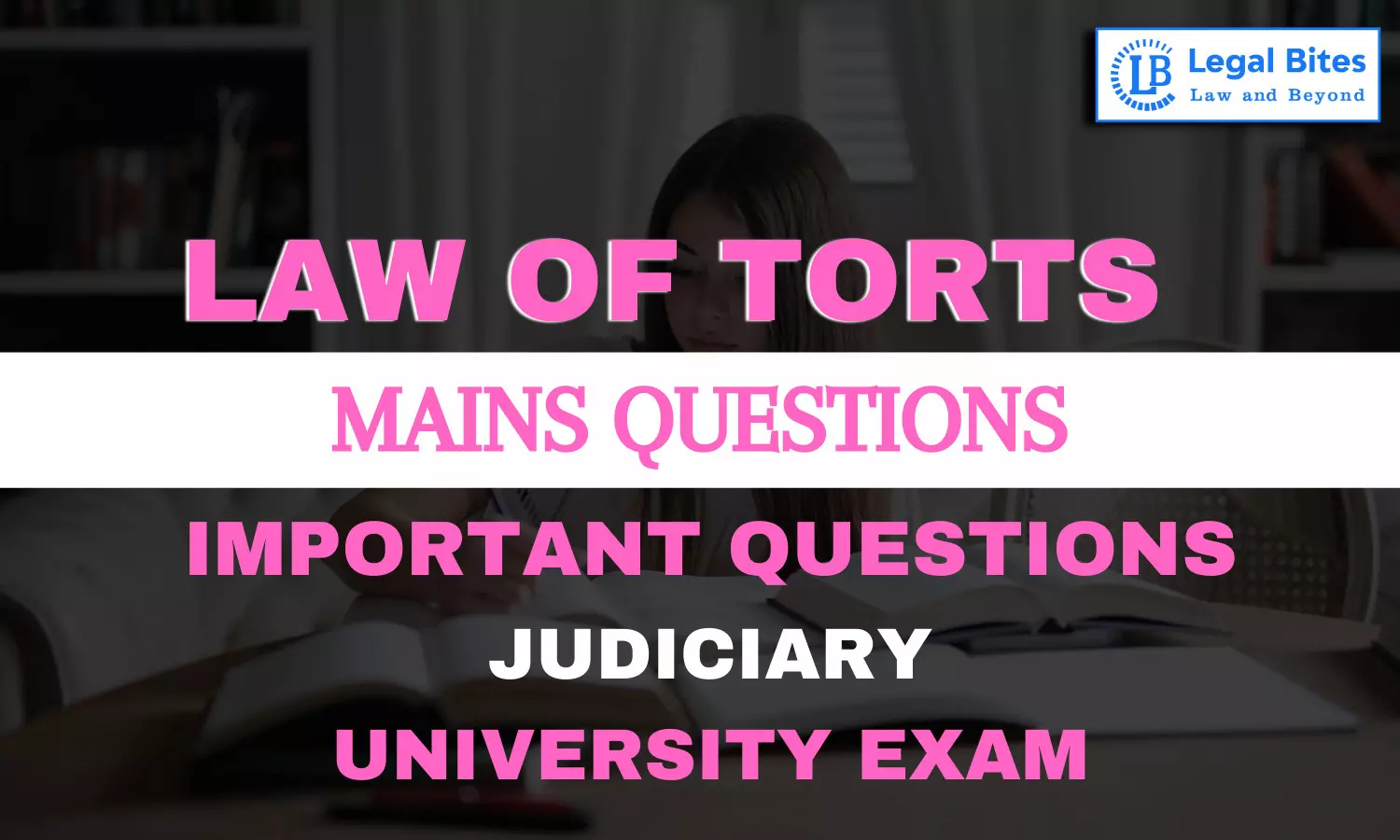What do you understand by the principle of strict liability? Define its relevancy in the present scenario.
Find the question and answer of Law of Torts only on Legal Bites.

Question: What do you understand by the principle of strict liability? Define its relevancy in the present scenario.Find the question and answer of Law of Torts only on Legal Bites. [What do you understand by the principle of strict liability? Define its relevancy in the present scenario.]AnswerThe principle of strict liability in tort law is a legal doctrine that imposes liability on a person for damages caused by their conduct, regardless of fault. This means that a person can be...
Question: What do you understand by the principle of strict liability? Define its relevancy in the present scenario.
Find the question and answer of Law of Torts only on Legal Bites. [What do you understand by the principle of strict liability? Define its relevancy in the present scenario.]
Answer
The principle of strict liability in tort law is a legal doctrine that imposes liability on a person for damages caused by their conduct, regardless of fault. This means that a person can be held responsible for harm caused by their actions or products, even if they did not intend to cause the harm or were not negligent in any way. The principle of strict liability is based on the idea that those who engage in certain activities, such as manufacturing dangerous products or engaging in activities that pose a risk to the public, should be held responsible for any harm caused by those activities.
There are several well-known cases in tort law that illustrate the principle of strict liability. One of the earliest and most famous cases is Rylands v. Fletcher, (1868) LR 3 HL 330, which was decided by the House of Lords in 1868. In this case, a mill owner was held liable for harm caused by water that escaped from his mill and flooded his neighbour's land. The court held that the mill owner was strictly liable for the harm caused by the escape of the water, even though he did not intend to cause the harm and was not negligent in any way.
Another famous case in strict liability is Winterbottom v. Wright, (1842) 10 M&W 109, which was decided by the Court of Exchequer in 1842. In this case, a carriage owner was held liable for harm caused by the defective state of his carriage, which was hired by another person. The court held that the carriage owner was strictly liable for the harm caused by the defective carriage, even though he did not know about the defect and was not negligent in any way.
In the area of product liability, strict liability is imposed on manufacturers and sellers of products that cause harm to consumers. This means that if a consumer is harmed by a defect in a product, the manufacturer or seller can be held responsible, regardless of whether they knew about the defect or were negligent in any way. In the famous case of McLoughlin v. O'Brian, the House of Lords held that a manufacturer of a household product was strictly liable for harm caused by a defect in the product, even though the manufacturer did not know about the defect and was not negligent in any way.
The principle of strict liability has become increasingly relevant in the present scenario, particularly in the area of product liability. As consumers become more aware of the potential dangers posed by certain products, they are increasingly demanding that manufacturers and sellers be held responsible for any harm caused by their products. This has led to an increase in the number of product liability cases and has put pressure on manufacturers and sellers to take greater care in ensuring that their products are safe.
In addition, the growth of the global marketplace has made the principle of strict liability even more relevant. As products are manufactured and sold across borders, it has become increasingly difficult to determine who is responsible for harm caused by products. This has led to the need for a clear and consistent principle of strict liability that can be applied across borders and across different legal systems.
The principle of strict liability has also become increasingly relevant in the area of environmental law, as the impacts of human activities on the environment become more apparent. The increasing recognition of the importance of environmental protection has led to an increase in the number of environmental law cases and has put pressure on individuals and companies to take greater care in protecting the environment.
The principle of strict liability in tort law is a legal doctrine that imposes liability on a person for damages caused by their conduct, regardless of fault. This principle is relevant in a number of different areas of law, including product liability, environmental law, and animal control, and has become increasingly relevant in the present scenario as consumers become more aware of the dangers posed by certain reckless and negligent human activities.

Mayank Shekhar
Mayank is an alumnus of the prestigious Faculty of Law, Delhi University. Under his leadership, Legal Bites has been researching and developing resources through blogging, educational resources, competitions, and seminars.
